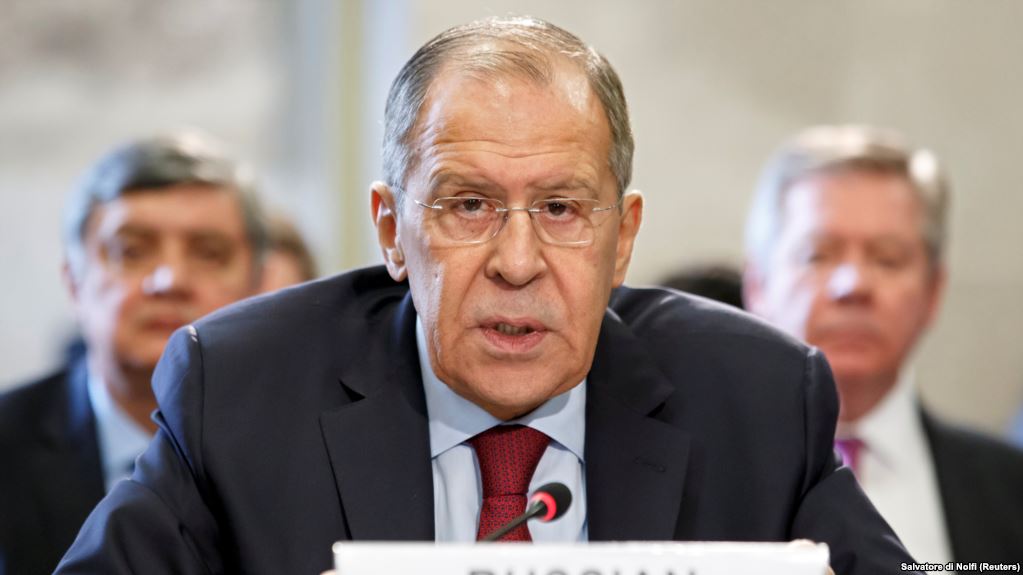Special to WorldTribune.com
Radio Free Europe / Radio Liberty
Russian lawmakers have asked for an explanation following media reports quoting Foreign Minister Sergei Lavrov as saying that Moscow could potentially hand over two islands in the disputed Southern Kuriles chain to Japan.

Communist Party lawmaker Nikolai Kharitonov raised the issue on December 18, asking State Duma speaker Vyacheslav Volodin to invite Lavrov to come to the lower parliament house and clarify the government’s position.
After a brief debate, Volodin instructed deputy speaker Aleksandr Zhukov to work on an invitation for Lavrov.
The Soviet Union seized four islands off Hokkaido in the closing days of World War II, and the territorial dispute has prevented Moscow and Tokyo from concluding a peace treaty. Russia calls the islands the Southern Kuriles, while Japan calls them the Northern Territories.
In an interview published on December 17, Lavrov told the tabloid Komsomolskaya Pravda that Moscow could hand Japan the two smaller islands, Shikotan and a group of islets called Habomai, if Tokyo “recognizes the results” of World War II — something he said Tokyo was “not ready for yet.”
Recognition of the results, in Russia’s eyes, means that Japan would have to accept Russian possession of the disputed islands as legal, potentially ruling out any further dispute or claims by Tokyo on the two larger, more populated islands, Iturup and Kunashir.
Media reports in Russia in recent weeks have said that Moscow might hand some parts of the disputed islands over to Japan following a November 14 meeting in Singapore between Russian President Vladimir Putin and Japanese Prime Minister Shinzo Abe, who agreed to step up negotiations on concluding a peace treaty.
Russian politicians tend to publicly oppose ceding any Russian territory to neighbors, and President Vladimir Putin’s ratings got a boost when Russia seized control of the Black Sea peninsula of Crimea from Ukraine in 2014.
The calls for a clarification could reflect concerns among lawmakers that Moscow might hand over the islands, and the desire of Communists or other politicians outside of the ruling United Russia party to score points with constituents could also be a factor.
But if Putin’s government is considering ceding the two smaller islands to Japan as part of a peace treaty, having Lavrov appear before the Duma could be a chance for the Kremlin to explain the move to the populace in advance.
Some Russian media reports suggested that the Kremlin might be seeking to resolve the long-standing dispute with Japan in the near future in hopes that it would draw global attention away from its actions in Ukraine, where it holds Crimea and supports separatists who control parts of two provinces in the eastern region known as the Donbas, and potentially lead to an easing of the sanctions imposed as a result.
Amid increased talk about the possibility of a treaty, the Kremlin said recently that Abe may visit Moscow on January 21.
But tensions were raised on December 17, when the Russian Defense Ministry said it planned to shift troops next week into four housing complexes it has built on Iturup and Kunashir.
Japanese Foreign Minister Taro Kono told a regular news conference later the same day that Tokyo would lodge a protest over the military move.
Japan said in July that it asked Russia to reduce its military activity on the islands but Moscow seemed to dismiss the idea, accusing Japan of negotiation through the media and public statements.
